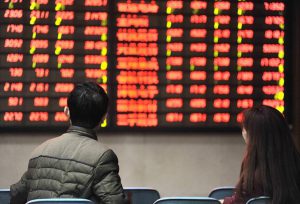(ATF) US inflation data came in much higher than expected on Wednesday May 12, pushing down tech stocks with the Nasdaq falling another 2.7%. ARK ETFs also fell, despite founder Cathie Wood predicting a “very serious correction” in the rising commodity prices that are helping to drive inflation fears.
US stocks suffered the biggest slump in three months and Treasury yields jumped after data showed consumer prices in April unexpectedly rose by the highest level in nearly 12 years, prompting bets on interest rate hikes.
The benchmark 10-year Treasury yield rose to 1.69%, which remains just below a recent high, but concern that a push towards 2% may be underway helped to fuel weakness in equity markets, especially among growth technology stocks.
A 0.8% monthly jump in the April consumer price index – dramatically outpacing a 0.2% forecast and equating to a 4.2% annual rise – also boosted the US dollar as expectations of rising real interest rates raised the currency’s appeal.
The Dow Jones fell 2%, the S&P 500 dropped 2.1%, and the Nasdaq lost 2.7%.
For the S&P and the Nasdaq, Wednesday’s tumble was the biggest fall in a single day since February, while the Dow’s decline was the sharpest in a day since January.
Tesla fell another 4.4% to add to substantial losses each day this week – including a 6.4% slump on Monday – and the ARK group of exchange traded funds (ETFs) that counts Tesla as its biggest holding saw further downward pressure.
‘Very serious correction’
ARK founder Cathie Wood tried to downplay the extent to which rapidly changing expectations of inflationary pressure could erode the value of her concentrated bets on technology stocks.
In an ARK webinar Wood said that rising commodity prices will see a “very serious correction” in part due to adoption of electric vehicles – a sector where her funds have exposure via multiple different stocks.
“I do not believe the inflation genie is out of the bottle,” Wood said. “The opportunity if the view is correct is phenomenal.”
Her prediction that future benchmark 10-year Treasury yields will stay in a 2% to 3% range – or possibly 1.50% to 3% – left plenty of leeway but may have underplayed the effect that rising rates can have on technology stocks, given the dramatic effect on equities of a 20 basis point rise in US bond yields this week.
Wood, nevertheless, has backing from regulators in downplaying the threat of inflation.
Richard Clarida, vice chairman of the Federal Reserve, acknowledged on Wednesday that the latest inflation report was the second piece of data in a week to catch the central bank off-guard, describing it as the “biggest miss in history.”
But Clarida maintained the central bank’s dovish tone, saying it will be “some time” before the US economy is sufficiently healthy for the Fed to consider pulling back its crisis-level degree of support.
Money market investors seemed to disagree. Eurodollar futures contracts expiring in December on Wednesday priced in a 25-basis-point core rate hike by the end of next year, compared with 22 basis points before the inflation report.
Weakness on Wall Street mirrored stock market losses in Asia, as surging commodity prices stoked inflation concerns. MSCI’s broadest index of Asia-Pacific shares outside Japan had slumped 0.95% overnight, after hitting its lowest level since March 26.
Taiwan’s benchmark stock index fell 8% at one point on separate concerns about a Covid outbreak before closing down around 4%.
The benchmark 10-year Treasury yield rise to 1.69% was the biggest jump in a day since March 18, and the two-year Treasury yield rose to 0.16%.
The yield curve steepened, and the spread between two- and 10-year Treasury yields widened to 153 basis points.
























